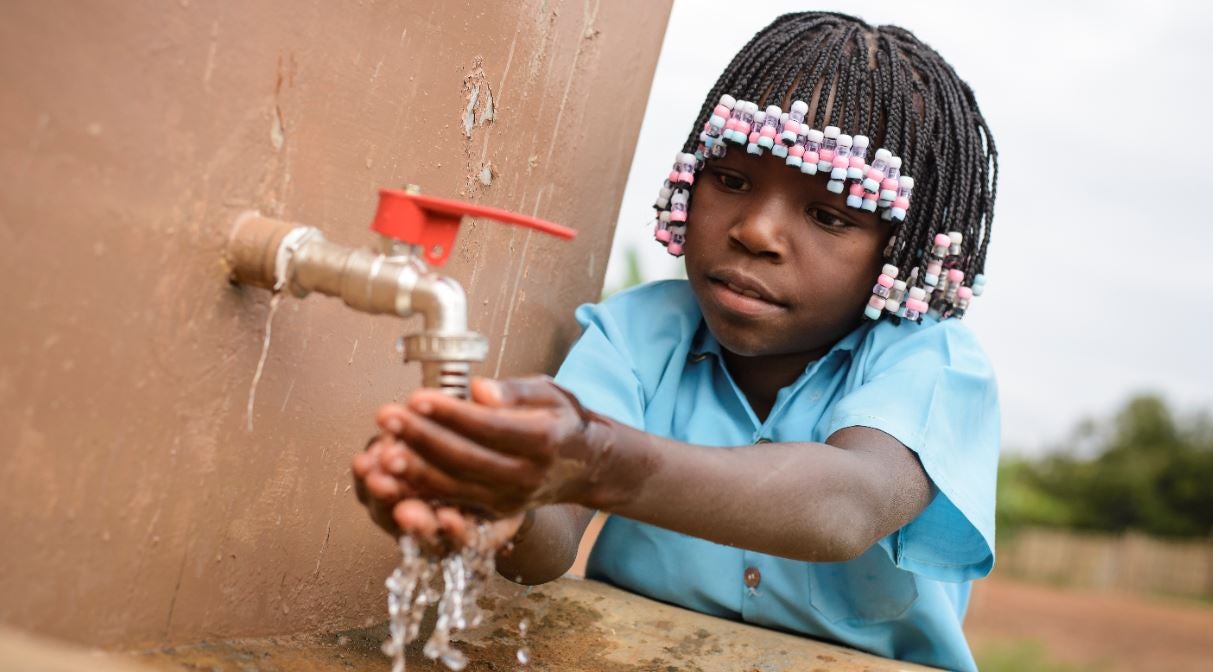 Water and Sanitation Hygiene in Schools
Water and Sanitation Hygiene in Schools
Countries all over the world are trying new ways of softening or partially lifting COVID-19 related restrictions while keeping the virus progression in check. As several countries take measures to adjust to the new normal, schools reopening are among the most pressing and challenging considerations to be made. Indeed, with more than 30 million cases of COVID-19 reported worldwide, education is one of the most affected sectors. UNESCO estimates that almost a billion students are facing either school closure or uncertainty regarding their classes, threatening the future of several generations.
Water, sanitation, and hygiene (WASH) have emerged as an issue of particular concern when considering schools reopening. WASH is a critical service for preventing contamination by infectious diseases like COVID-19. Yet, globally, only 66 percent of schools have access to basic sanitation, and about 407 million children lack access to any type of school toilets . Where toilets exist, these are not always well maintained and present a risk for the pupils and the entire school community.
In Mozambique, only 20 percent of the schools have handwashing facilities. While toilets are present in over 90 percent of the schools, they are largely not clean or functional, making them useless or, at worst, a public health hazard. Even in normal times, lack of WASH facilities is particularly challenging for girls, who, in many cases, are forced to stay at home during the menstrual period due to the absence of adequate sanitation facilities in their schools. This limits school attendance and retention for girls, which in turn limits their future livelihood opportunities.
On August 4, 2020, After more than five months of suspension of classes, about 45 percent loss of the academic year, affecting nearly 14,970 schools and over 8.5 million pupils, the Government of Mozambique announced a phased school reopening by the end of August 2020. A total of 627 secondary schools and 19 teacher training institutes were selected for the first phase of reopening, which would bring back to school about 82,000 pupils, of which 24,000 girls. However, only a quarter of the selected schools were estimated to have access to the basic services required for adequate hygiene practices. Parents, students, and civil society groups have raised concerns about the safety of the schools, as most of them lack access to water supply and sanitation, prompting the Government to further postpone school reopening until essential sanitary conditions are created. Thus, the reopening of the full secondary, primary, and pre-primary education hinges on the ability of schools to put in place basic and functional hygiene conditions.
Investing in sustainable WASH services in schools requires joint efforts and collaboration among different sectors, including water and sanitation, education, and health. This is the approach taken by the World Bank in Mozambique, which builds on multisector coordination and collaboration for better results on this front. Planned interventions under the IDA-financed Mozambique Urban Sanitation Project (MUSP) are aimed at improving access to sanitation for school girls and women entrepreneurs in markets in the cities of Quelimane and Tete, including menstrual hygiene management (MHM) facilities. The school sanitation interventions have now become prominent as means to create an enabling environment for safe return to schools for pupils and particularly girls. Under the project, toilets and water supply facilities are being upgraded in all the fourteen existing public secondary schools in the cities of Quelimane and Tete and will be expanded to cover additional 235 schools in Zambézia, Tete, Manica, and Sofala Provinces.
The project is also financing toilet maintenance services to ensure periodic cleaning and disinfection during the pandemic. The upgraded toilets include features to provide privacy and comfort for MHM, and access for students with disabilities, as well as fully equipped handwashing facilities. Further, girls will be provided with sanitary pads and training to enhance their MHM.
Continuity and quality of these interventions are essential to reduce the risk of increased spread of water-borne diseases, particularly for the vulnerable and poor communities, which means that well managed WASH services are also critical in building resilience against other disease outbreaks.
Additionally, a set of interventions are currently under preparation through the World Bank and Global Partnership For Education (GPE) financed project named: Improving Learning and Empowering Girls in Mozambique – MOZlearning. The project aims to increase learning readiness and retention of girls in upper grades of basic education in underserved areas in Mozambique. Among others, the project will support the Government’s effort to provide nine years of basic education through the upgrading of 235 primary schools to teach lower secondary level, contributing to an approximately 30 percent increase in schools offering lower secondary education in Mozambique. The upgrading will include additional classrooms to cater for a growing demand for secondary education, gender-friendly WASH facilities for MHM, multipurpose classrooms, and sports facilities. The project will also build 200 pre-school centers with safe and inclusive WASH facilities, which, we hope, will pave the way for a safer return to school and in helping the country retain millions of girls in schools.



Join the Conversation